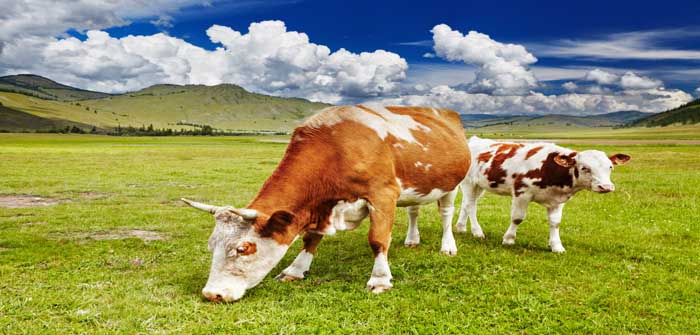Merial has today launched a national vaccination awareness campaign at UK Dairy Day 2017 to encourage farmers to consider vaccinating calves against calf pneumonia. The campaign follows the results of a national cattle survey, which shows that calf pneumonia remains prevalent on farm, and less than 25 per cent of farmers are using calf vaccination as a preventative measure.
Calf pneumonia is a cause of major economic loss for the cattle industry, affecting an estimated 1.9 million animals and costs the UK cattle industry around £60m. At farm level the losses are also significant, with costs in the region of £43 per dairy calf and £82 per suckler calf.
A UK-wide cattle survey carried out in July and August 2017 investigated calf pneumonia control practices on UK beef and dairy farms. It found that 98 per cent of cattle farms surveyed had at least one case of calf pneumonia in the past year.
In small herds of 100 cows or fewer, 90 per cent of farmers reported between one and 10 cases of calf pneumonia in the past year. In medium-sized herds of between 101 and 250 cows, 82 per cent of farmers reported between one and 20 cases.
Sioned Timothy, ruminant technical manager at Merial Animal Health, said: “Calf pneumonia continues to be a serious issue for the cattle industry. In recent years farmers have taken great strides in improving housing and calf husbandry to reduce disease outbreaks, but incidence remains high.
“While 38 per cent of farmers surveyed said cases of calf pneumonia had decreased over the past three years, 41 per cent said the number had stayed the same and 21 per cent said they had seen an increase in cases. This suggests that farmers need to re-evaluate the steps they are taking to combat the disease.”
While the cost of calf pneumonia is well documented, the survey responses also highlighted its non-financial impact, particularly on staff time and stress. The top six biggest impacts reported by farmers through the survey were: increased costs from vet treatment and medicines (66 per cent), loss of income through less productive calves (63 per cent), loss of income from dead/culled calves (49 per cent), increased time to finishing/bulling (29 per cent), staff stress (35 per cent) and increased staff time and costs (32 per cent).


